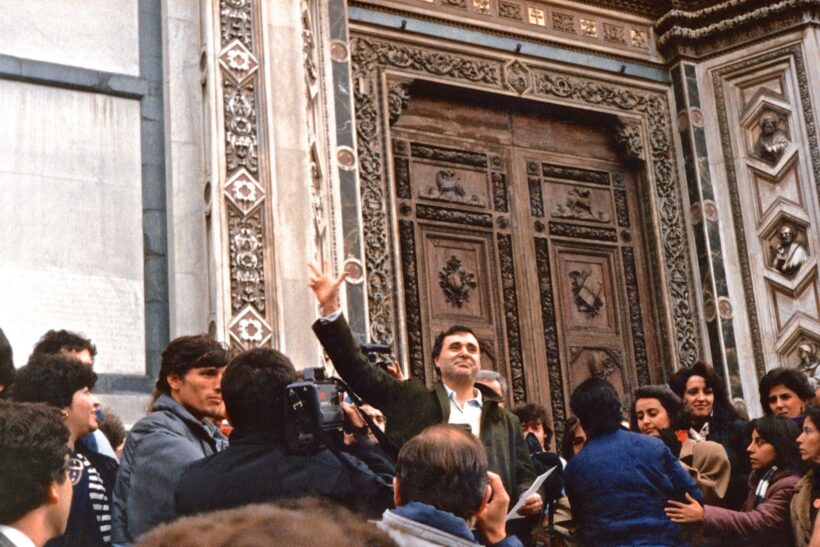The idea of a World March for Peace and Nonviolence comes from the deep need to overcome the pain and suffering of humanity by generating actions in search of growing peace. We invite all those who wish to participate, humanists, pacifists, all institutions, universities, schools, governments, and the community in general that resonate with this principle of non-violence, to carry out exemplary actions, and demonstrations, to make them visible and resonate, to awaken the consciousness of the change we want. A better world, where humanity develops into a universal human nation.
By Cecilia Umaña
The 1st World March for Peace and Nonviolence 2009-2010 started in New Zealand and ended in the Park of Study and Reflection in Punta de Vacas, Argentina, near Mount Aconcagua. The 2nd World March 2019-2020 began in Madrid, Spain, and ended in the same city.
Today, 3 March 2024, we are starting the virtual launch from Colombia with the presentation “Transcending the Prehistory of Violence and Peace”, adding different points of view, with Maaly Kentake from the Dominican Republic and Rafael de la Rubia, Spanish, promoter of the World March from the Organization World without Wars and Violence, ending with the reading of the Ethical Commitment, which we invite to be carried out in all institutions since it is a commitment or an oath not to give our knowledge in favor of violence or against human life.
The 3rd World March for Peace and Nonviolence will depart from San José de Costa Rica on the 2nd of October, International Day of Nonviolence, and will end in the same city on the 5th of January 2025, after having crossed the continents, like the previous marches, leaving behind relevant actions to continue this project of building a world without war and violence.
BACKGROUND
On 2 November 2007, the 5th International Conference on Education and Nonviolence and the International Forum for Global Nuclear Disarmament occurred at the National University of Distance Education (UNED) in Madrid. Academics, rectors, students, representatives of the diplomatic corps, and people from different countries and continents participated in this activity promoted by the Association World Without Wars and Violence. At the end of the conference and the forum, the Ethical Commitment Ceremony was held.
Educator Consuelo Fernández introduced the ceremony by recalling the Italian academic Salvatore Puledda at the event held on 7 January 1989 in Florence, the capital of historical humanism. It was a tribute to Galileo Galilei and other historical humanists. On that occasion, those present committed to fighting resolutely for the progress of science at the service of humanity.
We recall the words of Salvatore Puledda on that occasion: “Today we live in a world in which some people are ready to sell their knowledge and wisdom for any purpose and at any price. Today they have covered our planet with machines of death. Others have used their ingenuity to invent new means of manipulation and silencing, of trying to manage the conscience of men and people… Some men and women have used science and knowledge to alleviate fatigue and hunger. The pain and suffering of mankind. To remove the gag from the mouth of the oppressed. To give them voice and confidence. Today, at the dawn of the third millennium in the West, the survival of the entire human species on Earth is threatened. The nightmare of ecological catastrophe and nuclear hecatomb looms over our common home… Today, we call upon the world’s researchers, practitioners, and educators to use their knowledge for the exclusive benefit of humanity… and to commit themselves not to use the knowledge they have gained and the knowledge they will gain in the future for the purpose of
to oppress human beings. On the contrary, to use it for their liberation. We commit ourselves to work for the elimination of physical pain, mental suffering…”.
The following people present in Florence then took the floor to publicly declare their commitment in different languages: First, Joaquin Portillo, a professor of history from Honduras; then, in Arabic, Hasnae Roudani, a student from Morocco; in French, Marie Prost, lyrical singer; in Catalan, Carles Martin, self-employed worker; in English, Silvia Bercú, doctor of medicine from the United Kingdom; in Greek, Kostas Klokas, from the Chess Federation; in Italian, Emanuela Fumagalli, architect; in Wolof, Mohamed Lamine Niang, professional; in Czech, Dana Feminova, director of an NGO; and finally, in Spanish, Alba Coloma, student.
The event ended with these words “Good knowledge leads to justice, avoids confrontation, leads to dialogue and reconciliation…” and called for the ethical commitment to be introduced in all educational centers to contribute to the humanization of the earth.
At the end of the ceremony, some of those present spontaneously stood up, others remained seated, but all of them recited aloud the same commitment that had just been made by those presiding over the ceremony. It was a very moving act that ended with a round of applause.
-This was the first Ethical Commitment Ceremony, which took place on 2 November 2007 in the auditorium of the Faculty of Economics at UNED in Madrid.
-The text of the ceremony was written by a team from World Without Wars and Violence, coordinated by Rafael de la Rubia.
-It is a ceremony inspired by Salvatore Puledda’s “Homage to Galileo”.
The video of this event can be seen at: https://www.youtube.com/watch?v=KSDxZXL88vY
* Colombian. An active member of World Without Wars and Violence.






